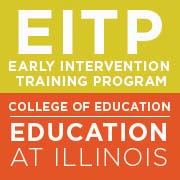Our New Mediation & Conflict Resolution will teach and review with you the essential concept of dispute resolution, which inevitably arises in the course of human dialogue. Within the realm of service provision, evaluation, and service coordination, opportunities for conflict come up often among service providers, parents, family members, early intervention officials, and service coordinators. By learning key elements, strategies and techniques, the early intervention professional may learn to stave off conflict by proactively anticipating them prior to their occurrence. Learning these approaches is essential to the professional repertoire of skills imperative to negotiating and communicating with families and vouchsafing professional integrity, ethics and reputation.
- Identify biological & historical causes of human conflict, especially directed at the developmentally disabled
- Identify your non-negotiables, developing Emotional Intelligence (EI), using Root Cause Analysis (RCA), planning and having a conflict conversation.
- Identify techniques as to how to initiate self-introspection as part of preparation for any mediation
- Understand the role of the mediator and how the early intervention provider may facilitate mediation successfully
- Identify typical working assumptions held by both sides of a conflict
- Identify how to increase your emotional intelligence as a tool to facilitate conflict resolution
- Identify cultural approaches to conflict, and how they may temper the mediation process
- Identify the five different conflict resolution strategies in the dual-concern paradigm, when compromise should never occur, and when it is entirely appropriate to use the conflict style in the early intervention setting
- Understand the benefit of root-cause analysis as a problem solving strategy
- Identify how to plan and proceed with a dialogue that facilitate mediation and conflict resolution
Review the many case examples of conflict among providers of care and with parents – as well as when compromise is never a possibility. Of inestimable value in professional relations and conduct, learning procedural safeguards toward conflict avoidance is invaluable to the repertoire of early intervention, pre-school, or school aged professionals. An important tool in the repertoire of any facility-based or itinerant therapist or teacher, providers will learn to facilitate the reaching of an agreement, maintain impartiality as a mediator, and improve dialogue. Of inestimable value in professional relations and conduct, learning procedural safeguards toward conflict avoidance is invaluable to the repertoire of early intervention, pre-school, or school aged professionals.
This primer is a MUST READ for all early intervention and pre-school therapists who interact with family members of children under their care!
Sign up now!

This program is offered for 0.35 ASHA CEU's (Various Level, Related Area)
* ASHA LEARNERS PLEASE NOTE: There are two purchase options available to you, EI Continuing Education and ASHA CEU. If you wish to earn ASHA CEUs for this course and you select the CEU option, your information including name, address, e mail and ASHA ID, will be sent to ASHA CE. If you do not want your information sent to ASHA, please select the option for continuing education. Learner must achieve a passing score of 75% on the post course examination in order to meet satisfactory completion requirements.

EITTOC is an AOTA Approved Provider of professional development. Course approval ID# 8922. This distance learning-independent is offered at 0.35 CEUs, introductory, Professional Issues. The assignment of AOTA CEUs does not imply endorsement of specific course content, products, or clinical procedures by AOTA or indicate AOTA approval of a certification or other professional recognition.
Meets NY State (NYSOTA) Continuing Compliancy Requirements for continued Core Competency Hours (CCH) –
APPROVED BY THE ILLINOIS EARLY INTERVENTION TRAINING PROGRAM FOR EARLY INTERVENTION CREDENTIAL CREDIT for 2.0 Hours
Approved as a Core of Knowledge Training by the EXCELS Early Childhood Development: Maryland State Department of Education
This course meets the Indiana State requirements for the annual credentialing process in the area of “Conferences & Workshops”
- This activity is pending approval from the National Association of Social Workers (NASW) –
Disclosure: David C Saidoff PT - course developer/presenter - has the following relevant financial relationships to disclose: he receives monetary compensation for the preparation of this course, in addition to a percentage of company sales, and has the following relevant non-financial relationships to disclose: EITTOC Board of Directors: volunteer member. Melissa Whelan, OTR - course developer/presenter - has the following relevant financial relationships to disclose: she receives monetary compensation for the preparation of this course, in addition to a percentage of company sales, and has the following relevant non-financial relationships to disclose: EITTOC Board of Directors: volunteer member. JAnisha Verdejo has the following relevant financial relationships to disclose: she receives monetary compensation for the preparation of this course, in addition to a percentage of company sales, and has the following relevant non-financial relationships to disclose: EITTOC Board of Directors: volunteer member. Declaration: Approval of this course does not necessarily imply that any of the governing bodies (e.g., West Virginian Board of Physical Therapy, or other such governmental orNGO’s supports the views of the presenter or sponsor. Information provided should be used within the scope of practice. No relevant financial or non-financial relationships exists between EITTOC or the products discussed any course; no such relationship or endorsement exists for any products mentioned in any courses sponsored byEITTOC, or in any of the items (such as specificAED or Epinephrine injection product) or any testing instrument used to evaluate children; the above course is specific to said-topic, and may not be extrapolated to any other course or topic outside the scope of this course. Course instructor(s) have no other financial or non-financial remuneration - whether prior to or following course delivery; the above advertisement is made available to all physical therapy (and other) licensee on a non-discriminatory basis. Ascend has approved this course and may be contacted about any concerns. Information provided should be used within scope of practice. The onus of responsibility for this course – granted contact hours by the AOTA – is for each OT professional to check with their State board of OT to see if this course meets licensure requirement for continuing education. AOTA does not endorse specific course content, products, or clinical procedures. The onus of responsibility for this course – granted contact hours by the AOTA – is for each OT professional to check with their State board of OT to see if this course meets licensure requirement for continuing education. AOTA does not endorse specific course content, products, or clinical procedures. This Course is approved for CH rather than CEU, by the AOTA. To determine if course is eligible for CEU (i.e., licensing requirements) in your State, check with your individual State board of occupational therapy licensing.
|






